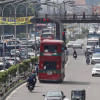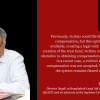Reckless driving continues to kill
The fatal road crash in Rangpur, caused apparently by rash driving of a coach helper, once again points to the worsening state of lawlessness prevailing in the transport sector. It is not known whether the helper, filling in for a drowsy driver, had a driving licence. The consequence: 12 dead and 49 injured.
Driving without a licence is, reportedly, a common practice in our country due to lack of enforcement of traffic laws and the impunity enjoyed by drivers. According to WHO, as many as 20,000 people die in road crashes in Bangladesh every year, one of the highest in the world. Although unlawful driving is not the only cause for such an astronomical number, experts believe it is one of the main reasons. But how many drivers have been punished for reckless driving and killing innocent people? Has anyone ever been arrested for operating a vehicle—private or commercial—without a valid licence? How many families of victims have been compensated?
The problem is multi-layered and complex. Drivers and other staff of buses are often sleep-deprived as their income depends not on fixed salaries but the number of trips they make, impelling them to enter an unhealthy competition to make more trips than they should in a given time period.
The government and the owners/operators should work together to support and institute measures for improvement of road safety in the areas of enforcement of traffic laws, proper driver training and more rigorous enforcement of vehicle fitness standards.
And the culture of impunity has to go.

 For all latest news, follow The Daily Star's Google News channel.
For all latest news, follow The Daily Star's Google News channel. 








Comments